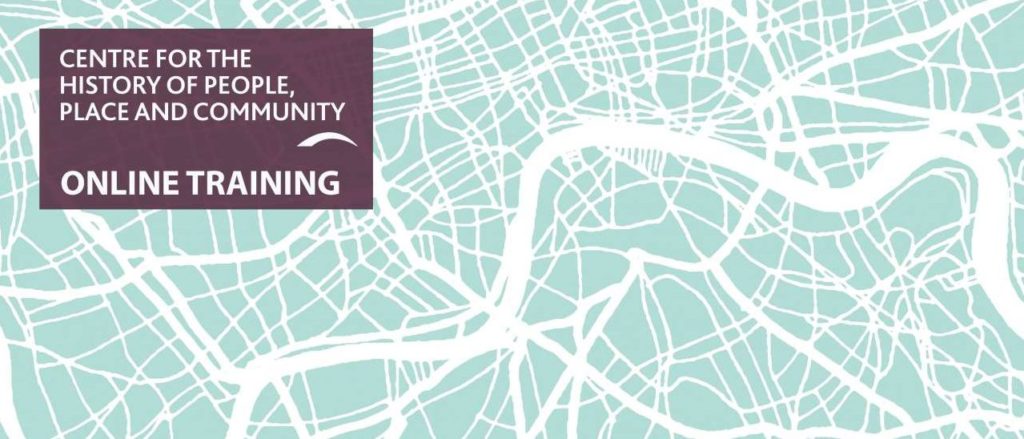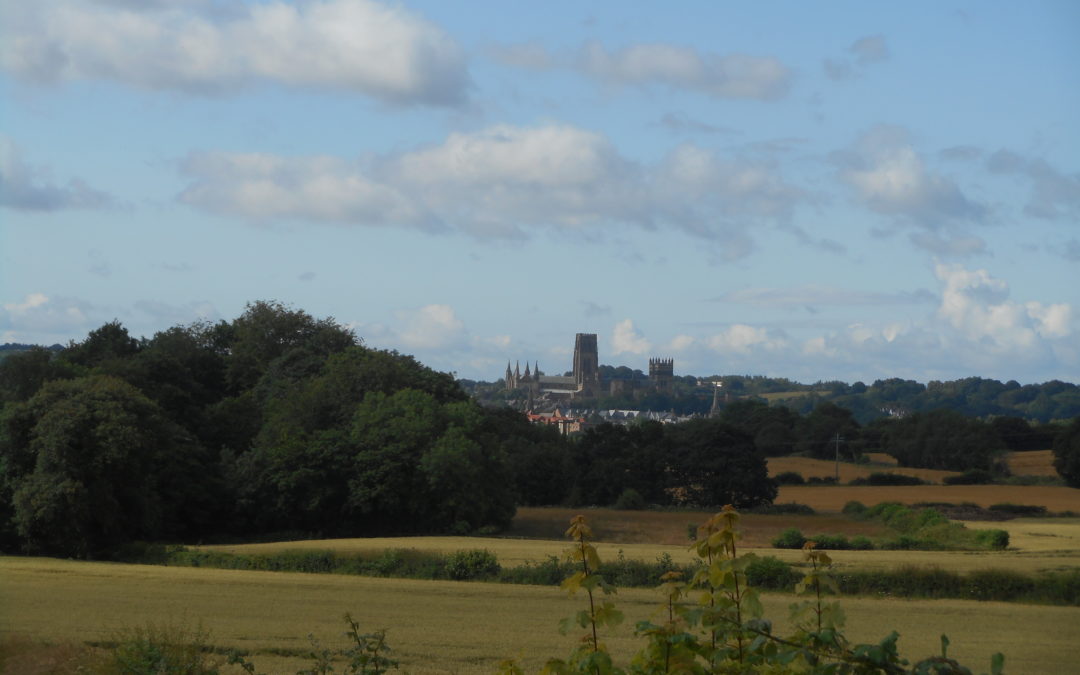This Autumn, the IHR’s Centre for the History of People, Place and Community launches an exciting new programme of online training, supporting skills for those working in ‘local history’ and beyond. How can tools for understanding place offer a way into examining the past?
Whatever your background as a historian, or whether you’re interested in local history, family history or the past of your place, these sessions are for you! As any author for the Victoria County History can attest, developing the skills write a history that spans the middle ages to the ever moving now is a challenge and we are here to help. We’ve listened to suggestions from the VCH community, and have put together a series of free online training workshops which will provide an introduction to the skills and subject areas required to develop and illustrate histories of place.
The first four online training sessions will feature the expertise of our Victoria County History team and a host of external experts. The first set will be broadcast online between September and November and will be recorded and made available for free on the Centre for People, Place and Community website.
These workshops are aimed at any local historian, genealogist or specialists in one area that needs a swift insight into another. So if you would like to learn more about the uses and abuses of cartography to illustrate research, how to interpret the landscape for evidence of settlement, looking at, understanding and writing about buildings or understanding the medieval state and how to navigate the records at The National Archives these sessions are for you.
All sessions are free, but booking is essential.

Cartography and Mapping for Publication – 9 September – The VCH team look at cartography and what good and bad historical mapping can do to aid the understanding of the history of Ambridge, the (fictional) home of BBC Radio 4’s long-running soap opera ‘The Archers’ set somewhere in the English Midlands. Stuart Brookes of UCL will discuss Tithe Maps, their content and digitisation. Book online now.
Analysing Historic Settlement – 23 September – Professor Susan Oosthuizen, author of The Anglo-Saxon Fenland and The Emergence of the English and Professor Angus Winchester, author of England’s Landscape: The North West and former Director of the VCH Cumbria Project will discuss the analysis of historic settlement through place names, mapping and the written record among other tools to write about the landscape and its history. Book online now.
Reading and Writing Historic Buildings – 22 October – chaired by Matthew Bristow, with Rebecca Lane (Senior Architectural Investigator, Historic England) speaking on how to write about buildings with David Clark, Secretary of the Oxfordshire Buildings Record on community recording of historic buildings. Book online now.
The National Archives, the Medieval State, Early Modern Litigation – 18 November – chaired by Dr Adam Chapman, Dr Paul Dryburgh and Dr Amanda Bevan introduce the medieval state, its structure and its records and delve into the uses of early modern litigation records and the workings of Discovery, the catalogue of The National Archives and how to get the best from it. Book online now.

